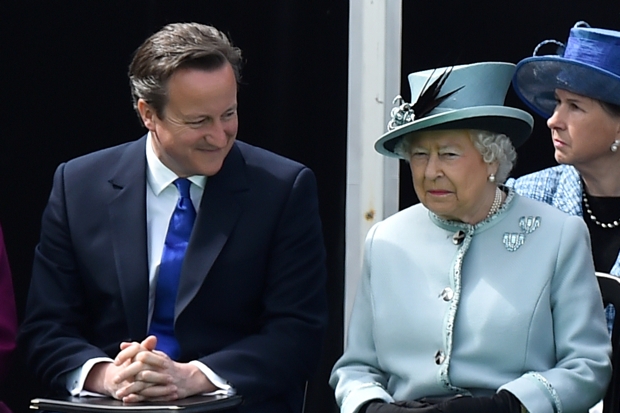My six-year-old, when told that there was a princess of England with the same name as her, was astonished to learn that such things existed. ‘In real life, not in princess-land?’ She assumed princesses only lived in some made-up world along with dragons and trolls and daddy’s savings account.
One of the arguments made against the monarchy is that it is inherently ridiculous and belongs in a children’s story. But as we mark 64 years under the Elizabethan junta, it is worth noting that it’s the very absurdity of monarchy that makes it egalitarian and anti-authoritarian, in that it keeps powerful people in their place.
If we were ever to throw away this Ruritanian form of government and have a modern system with modern rituals, it would necessary reflect the values and glory of the people in power. Blairites loved to get rid of tradition for that very reason; likewise with formality, which restrains people by illustrating in a sartorial manner that there are rules and they must play by them. The leader throwing off his tie is effectively asserting his dominance by saying such rules do not apply to him; in contrast the uptight, stuffy old backwoodsman who wears tops and tails is showing his submission to the rules.
Likewise when the prime minister has to take part in a ritual with men dressed as harlequins bearing slightly sinister names like Black Rod, it’s enforcing the idea that he is restrained by the living, the dead and the yet unborn. Furthermore the very archaic nature of the ritual of monarchy, which reinforces the idea that society is a hierarchal structure and that the rulers are heirs to privilege, is actually more democratic than a system that feigns fairness through the idea of meritocracy.
As Toby Young points out in this brilliant essay, meritocracy comes with intrinsic problems, one of which is the death of the noblesse oblige that people in more openly unjust societies feel. It would not be entirely fair to compare Britain’s relatively humble monarchy with the United States’s extravagant presidency, because the countries are fundamentally different. Socially and politically there is not much difference between monarchies and republics in northern Europe. But monarchy does have one other bonus in keeping politics humble.
As Mark Steyn recently pointed out: ‘One of the advantages of monarchy in a democratic age is that it comes with a built-in grievance factor: There’s always a certain percentage of the people that is chippily resentful of even the most footling expenditure on the Royal Family’s so-called pampered parasites – as a casual glance at the papers in Her Majesty’s realms will reveal. So a prince or royal duchess can’t go around closing streets and draining police manpower because some republican pol on the make will be all over the news whinging about it. That’s very healthy.’







Comments